Great People of Korea (2)

8. Heo Gyun (1569 – 1618) & Heo Nanseolheon (1563 – 1589)
Heo Gyun and Heo Nanseolheon were famous sibling writers during the Joseon dynasty. Heo Gyun authored the first Korean language novel, “The Tale of Hong Gildong.” His sister Nanseolheon wrote many poems that were highly commended by writers in Korea, China and Japan. Her accomplishments as a poet are particularly noteworthy, considering the social status of women during her time.
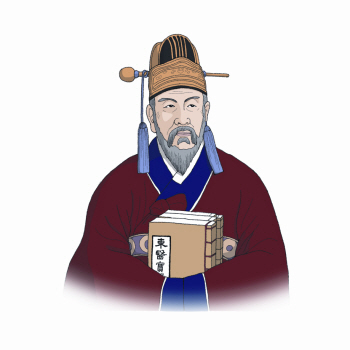 9. Heo Jun (1539-1615)
9. Heo Jun (1539-1615)
Heo Jun was a royal physician who wrote “Donguibogam,” one of the best medical books of the East. Dongui refers to Korean medicine. To compile this book, he spent 14 years reading over 240 medical books. The value of the book is internationally recognized, and it has been translated into many different languages, including Chinese, Japanese, German and English.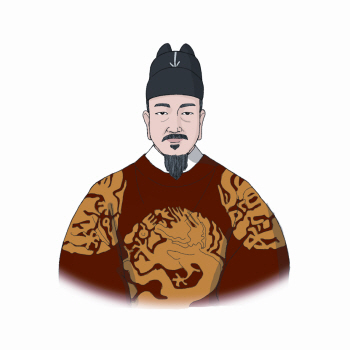 10. King Sejong the Great (1397 – 1450)
10. King Sejong the Great (1397 – 1450)
King Sejong was the fourth king of the Joseon dynasty, who is best known for the invention of the Korean alphabet Hangeul. Hangeul is the only alphabet in the world in which the inventor, principles of invention and dates of promulgation are known. During his reign, he made many impressive accomplishments in all areas, including politics, economics, culture and defense. The basis of his rule was always his love and sympathy for ordinary people.

11. Kim Hong-Do
Kim Hong-Do was a famous court painter during the Joseon dynasty. He exhibited exceptional artistic talent since his childhood. His drawings were quite varied, ranging from people, scenery, gods and Buddhist subjects. He created many different kinds of artistic works, including kings’ portraits and folk paintings. His genre paintings in particular are well known for their realistic depiction of ordinary people’s lives, and are still loved by Koreans.
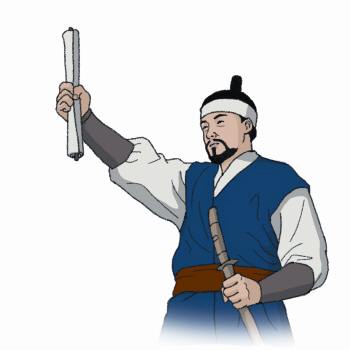 12. Ahn Yong-Bok
12. Ahn Yong-Bok
Ahn Yong-Bok was a patriotic fisherman, who played a crucial role in protecting Ulleungdo and Dokdo. During the reign of King Sukjong (1661-1720) of the Joseon dynasty, Ahn witnessed Japanese fishermen trespassing on Joseon’s territory and travelled to Japan to confront the Japanese government. His actions played an important role as Japan officially banned fishing activities in those areas in 1696 and recognized Ulleungdo and Dokdo as a territory of Joseon. Dokdo, with its beautiful scenery, remains Korea’s easternmost territory.
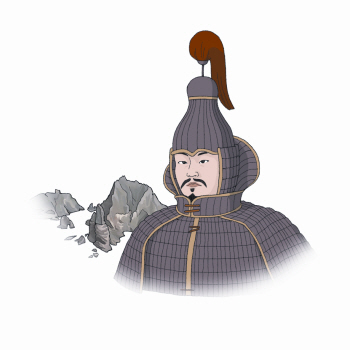 13. Isabu
13. Isabu
Isabu was a renowned general of Silla kingdom, who is widely known for his conquest and annexation of Usan-guk for Silla in 512. Usan-guk was a small kingdom that occupied the present-day islands Ulleungdo and Dokdo. He also advised the king to compile historical records, and made a major contribution to Silla’s territorial expansion by winning battles against Goguryeo and Gaya kingdoms.
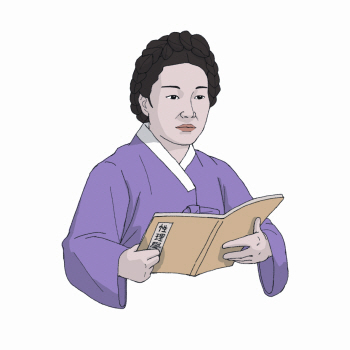
14. Im Yunjidang (1721 – 1793)
Im Yunjidang was a female scholar, who achieved a high level of knowledge in Neo-Confucianism during the Joseon dynasty. Joseon put limitations on women’s rights to gain formal education and to work outside the home. For this reason, she was unable to exhibit her academic talent in Joseon society, but she still pursued her scholarly interests until her death.
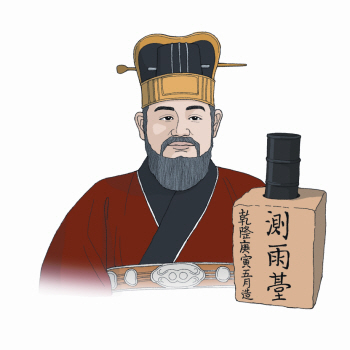
15. Jang Young-Sil
Jang Young-Sil was a scientist who invented the world’s first rain gauge “Cheugugi” in 1441. He led a renaissance in Korean science by creating many notable inventions, such as the Jagyeongnu automatic water clock and the Honcheonui astronomical clock. His scientific achievements are so highly regarded that Korean scientists named an asteroid after him.

16. Yi Hwang (1501 – 1570)
Yi Hwang was an eminent scholar, also known by his pen-name Toegye, who laid the foundation for the development of Neo-Confucianism in the Joseon dynasty. He committed his entire life to developing knowledge and educating students. Consequently, he was highly respected as a sage. His philosophy had a significant influence on scholars both inside and outside of Korea; including China and Japan. Since the establishment of the International Toegyehak Society in 1976, his work has been widely researched in many countries across the world.
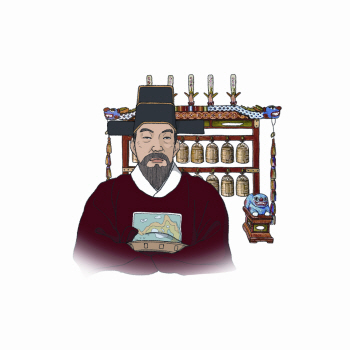 17. Park Yeon (1378 – 1458)
17. Park Yeon (1378 – 1458)
Park Yeon is regarded as one of the three greatest musicians in Korea’s 5000 years of history; along with Goguryeo kingdom’s Wang Sanak and Silla kingdom’s Ureuk. Under the order of King Sejong the Great, he organized court music, tuned musical instruments, and compiled music for royal events. To commemorate his legacy, a music festival is held every year in his hometown Yeongdong-gun.













 Copyright @ 1999-2012 VANK. All rights reserved.
Copyright @ 1999-2012 VANK. All rights reserved.
You must be logged in to post a comment Login